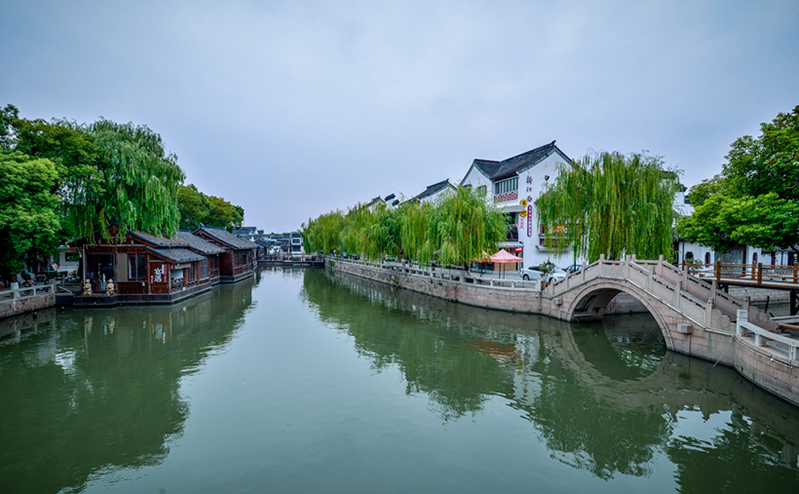24 Hours Hotline: +86 137-3541-1378
Email:[email protected]
24 Hours Hotline: +86 137-3541-1378
Email:[email protected]

Suzhou Culture
Suzhou culture is a rich tapestry of history, geography, local customs, unique living styles, literature and art, morals, mindsets and values. It is the core of Wu culture.
Wu Culture and Suzhou Culture
Wu, also called Wuyue, is a region in the Jiangnan area (the south of the Yangtze River), surrounding Suzhou, in the Jiangsu and Zhejiang provinces of China. The culture of Wu is the abbreviation of the regional culture of Wu State founded in the period of Spring and Autumn. It extensively means the all-inclusive achievements of local people of current main parts of East China – Wuxi, Suzhou, Changzhou, Jiaxing, Huzhou and Shanghai, in the aspects of material and spirituality, the tangible and intangible heritage. It is based on the culture of original Wu State, and the development through successive dynasties. Up to Ming Dynasty, it got its highest peak. Since Qing Dynasty, as the declination of traditional feudal society and the rising of capitalism in China, the culture of Wu has gradually transformed to modernization from the traditional style.
The Wu culture produced a rich tapestry of cultural influences that would shape the city of Suzhou beyond the cultural period defined by the Wu state proper. The historic Wu Culture has left Suzhou City with a series of excellent cultural heritages, such as the classical gardens, the water townships, the melodic rhythm of Kun Opera and Ping Tan, the Wumen Fine Arts School, the Suzhou handcrafts and the Jiangsu Cuisine. Each of them can reflect the locals' essential character-exquisite, mild and intelligence. In addition, Suzhou produced plenty of literary geniuses and influences down through history, names such as Lu Ji from the Western Jin Dynasty (265-316);the famous loyal politician Fan Zhongyan and the poet Fan Chengda from the Song Dynasty (960-1279); the dramatist Feng Menglong from the Ming Dynasty; Tang Yin and Wen Zhengming of the Wu Painting School, both of whom were scholar-artists during the Qing Dynasty, etc.
Wu Dialect
Wu Dialect is a group of linguistically similar and historically related varieties of Chinese primarily spoken in Zhejiang province, the municipality of Shanghai, and southern Jiangsu province. It can be dated back to the Spring and Autumn period, and was used as an official language of the Wu and Yue states over 2,600 years ago. Suzhou has traditionally been the linguistic center of the Wu dialects and was likely the first place the distinct variety of Chinese known as Wu developed. And the Suzhou variety was perhaps the most important dialect of Wu in earlier times, used by scholars, officials, and other members of the elite. But it was supplanted by the Shanghai dialect in the early twentieth century as migrants flooded Shanghai. Word order is generally less strict in Wu than it is in Mandarin, although the majority of phrases still follow the subject-verb-object pattern. Wu is often described by other Chinese speakers as having a soft, flowing quality to its pronunciation. The language is known for its complex pronoun system, which uses different sets of pronouns depending on whether or not the speaker is including the listener in the reference.
Classic Gardens
As the saying goes, "Gardens in the south of Yangtze River are the best in the world, and Suzhou gardens are the best among them." Suzhou is famous for its Classical Gardens, collectively a UNESCO World Heritage Site. The Humble Administrator's Garden and Lingering Garden are among the four most famous classical gardens in China. The Canglang Pavilion, Lion Grove Garden, Humble Administrator's Garden and Lingering Garden, respectively representing the garden styles of the Song, Yuan, Ming, and Qing dynasties, are called the four most famous gardens in Suzhou. Other gardens inscribed on the World Heritage List include the Couple's Retreat Garden, the Garden of Cultivation, and the Retreat and Reflection Garden. Conceived and built under the influence of the unconstrained poetic freehand style originally seen in traditional Chinese landscape paintings, they are noted for their profound merging of exquisite craftsmanship, artistic elegance and rich cultural implications. These gardens lend insight into how ancient Chinese intellectuals harmonized conceptions of aestheticism in a culture of reclusion within an urban living environment.
Suzhou Silk
Suzhou is known as the "Paradise on Earth" and also "the hometown of silk". Suzhou Silk was developed throughout the Paleolithic and Neolithic age in the Taihu Lake Basin. Forefathers of Suzhou had mastered the technique of breeding silkworms and spinning silk back in the Spring and Autumn period. According to "The Records of the Grand Historian" (a comprehensive history of ancient China) in 519 BC, Wu and Chu kingdoms were engaged in large scale wars fighting over mulberry trees, which reflected the important roles of silkworms and mulberry trees in the economy at that time.The silk products were first transported to the other regions when the Silk Road originated in Han Dynasty. Silk rapidly became a popular luxury fabric in the many areas accessible to Chinese merchants because of its nice texture and lustre. Suzhou became the center of silk production in China since Tang (618-907) and Song (960-1279) dynasties, and the city offered most of the silk and relevant products for imperial families in Ming (1368-1644) and Qing (1644-1911) dynasties.
Pingtan
Pingtan, must also be noted as yet another exquisite performance art of Suzhou, after all, it is probably the most local form of performing art.
Essentially, Pingtan is a story telling art where together, two artists/storytellers, one male and one female, retell traditional tales. Stories can take hours, even days to be told and so, traditionally, these performances take place in peaceful teahouses.
The name Pingtan comes from the unison of two Suzhou words: pinghua and tanci, storytelling and ballad singing. And so, true to its origins, Pingtan uses Wu Kingdom Chinese or Suzhou dialect, in addition to traditional Chinese instruments. Normally, the woman plays the Pipa, while the man plays a three stringed instrument. Together the melodies are sweet and support the story being told.
Kunqu Opera
Kunqu also called Kun Opera, is one of the oldest forms of Chinese Operas, also considered to be one of its Four Great Characteristic Melodies.
Born in the Wu Kingdom, today’s Kunshan area of Suzhou, it grew and thrived. However, during the Cultural Revolution, opera performances were suppressed. Despite this and against all odds, Kunqu gained in popularity and significance, leading to its current position of importance and appreciation.
Another aspect of Kunqu that is still unknown to many is that it has influenced many other styles of Opera, especially its better known cousin, the Peking Opera. It is even said that the appearance of Kunqu was the key reason for the rise in popularity and success of Chinese theater and drama.
Wechat: Chinaprivatetour
24 Hours Hotline:
+86 137-3541-1378
* Authentic Experiences: Genuine local experiences that immerse you in the true essence of Suzhou and beyond.
* Safety First: Highest safety standards with secure activities and reliable transportation.
* Customizable Tours: Flexible itineraries tailored to your interests and needs.
* Local Expertise: In-depth knowledge of Suzhou and China, offering exclusive insights.
* Professional Guides: Licensed bilingual guides with over 5 years of experience.
* Comfortable Travel: Experienced drivers and well-maintained vehicles for a smooth journey.
* Sustainable Tourism:Commitment to responsible tourism and supporting local communities.
* Customer-Focused: Personalized service and continuous improvement based on your feedback.
* Free Cancellation: Cancel up to 24 hours before travel for flexibility and peace of mind.
* 24/7 Support: Round-the-clock assistance for any questions or help needed.
1 to 1 tailor-made service from our professional travel advisors for the most sophisticated
Constantly excellent reviews for attraction, hotel and service Competitive price
Local experts provide quality tours Best selected knowledgeable local guides Authentic local restaurants
7*24 hours available to create you a worry-free tour. No Hidden Fees and absolutely no pressure to buy. Secured









Copyright © 2017 Suzhouprivatetour.com All rights reserved. 浙ICP备18056007号-4